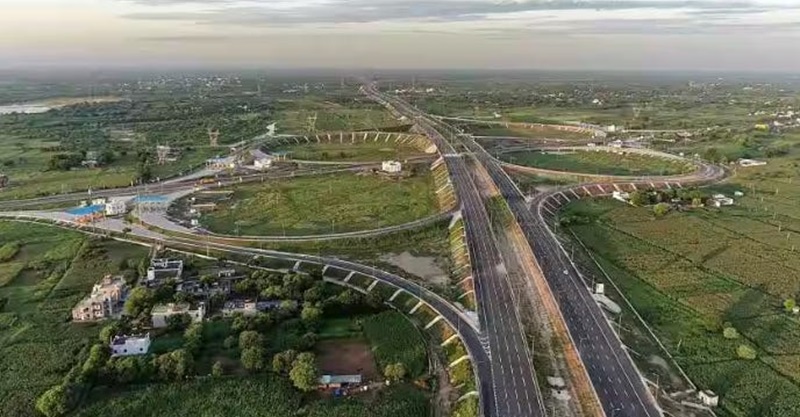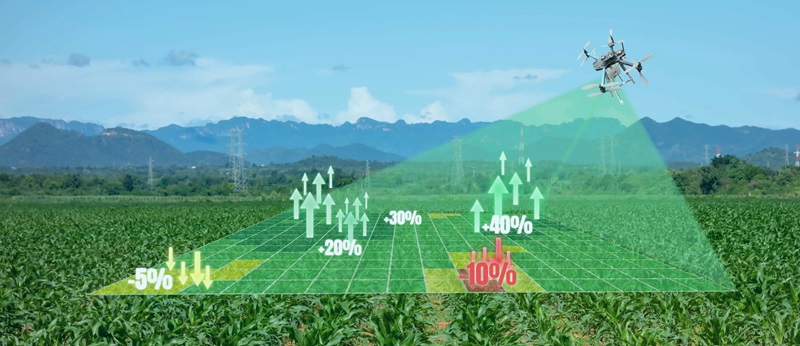Leading Gujarat's Power Sector: An Exclusive Interview with Arun Mahesh Babu M.S., IAS
1.jpg)
Arun Mahesh Babu, MD at Gujarat Power Corporation Limited
Arun Mahesh Babu M.S., IAS, has been at the helm of Gujarat Power Corporation Ltd. (GPCL) and Uttar Gujarat Vij Company Ltd. (UGVCL) as the Managing Director, steering the state's power sector through a transformative period. With his extensive experience in the energy sector, he provides invaluable insights into the strategic advancements and innovations shaping Gujarat's power infrastructure. In this exclusive interview, Arun Mahesh Babu elucidates his role, the strategies for enhancing grid stability, and the future of energy management.
Could you please share a brief overview of your role and responsibilities as the Managing Director of Uttar Gujarat Vij Company Ltd and Gujarat Power Corporation Limited?
As the Managing Director of Gujarat Power Corporation Ltd. (GPCL) and Uttar Gujarat Vij Company Ltd. (UGVCL), I am entrusted with the critical task of advancing Gujarat's power sector. GPCL, a public sector entity under the Energy and Petrochemicals Department, and UGVCL, a wholly-owned power distribution company of Gujarat Urja Vikas Nigam Limited (GUVNL), require meticulous strategic planning and innovative initiatives. My role involves steering both organisations towards our vision of delivering reliable, efficient, and sustainable energy. This entails overseeing strategic advancements, spearheading sustainability initiatives, and ensuring that our power distribution networks meet the highest standards of performance and reliability.
India’s power grid is the third largest in the world and has maintained stability since 2009. What are some of the key strategies or technologies that have contributed to this stability?
The stability of India's power grid is underpinned by several key strategies and technologies. One pivotal approach is the integration of renewable energy sources, particularly solar and wind power, which enhances grid flexibility. Gujarat is at the forefront of this transition, boasting significant wind energy capacity and ambitious projects such as wind-solar hybrid parks and offshore wind initiatives. Additionally, the emphasis on power system flexibility—leveraging conventional thermal and hydro generation, energy storage, and demand response—plays a crucial role. Smart grid technology further enhances stability by utilising advanced data, communication, and control systems to manage grid efficiency and reliability. In Gujarat, modernisation efforts, including the deployment of smart metres and SCADA systems, exemplify this approach.
How does your organisation address challenges related to grid resilience and security, especially in the face of natural disasters or cyber threats?
Ensuring grid resilience involves a multi-faceted approach. For natural disaster preparedness, we have established robust infrastructure and comprehensive contingency plans, including regular equipment maintenance and disaster management strategies to facilitate rapid recovery. In terms of cybersecurity, we adopt a proactive stance, employing advanced firewalls, intrusion detection systems, and regular audits to safeguard our networks. Additionally, we collaborate with government agencies and industry partners to stay ahead of emerging threats. Investment in cutting-edge technologies, such as grid automation and real-time monitoring systems, further strengthens our security measures and resilience capabilities.
Weather patterns can impact power needs significantly. How does your organisation utilise technology to incorporate weather data?
We leverage several technologies to incorporate weather data into power grid management. Smart grid systems utilise sensors to gather real-time data on weather parameters, enabling proactive responses to weather-related challenges. IoT technologies facilitate precise forecasting and enhance plant availability and grid management. Moreover, advanced weather prediction tools, including satellite imagery, help anticipate the integration of renewable energy sources. The development of underground infrastructure for transmission cables also mitigates weather-related risks, ensuring consistent power supply.
With advancements in technology, what future innovations do you foresee revolutionising power grid management?
The future of power grid management is poised to be revolutionised by several innovations. The Internet of Energy, integrating IoT devices, promises real-time energy monitoring and control, enhancing grid efficiency and sustainability. Dynamic renewable integration and AI applications will optimise grid operations and predict power demand, while energy management systems will streamline production and distribution. Microgrids will offer resilience and facilitate renewable energy integration, especially in critical sectors requiring uninterrupted power. These advancements will significantly enhance grid management's efficiency, reliability, and environmental sustainability.
What role does advanced battery storage play in supporting the state’s green energy transition and overall energy strategy?
Advanced battery storage is instrumental in supporting Gujarat’s green energy transition. Battery Energy Storage Systems (BESS) enable efficient storage of renewable energy, balancing supply and demand, and stabilising the grid. They are crucial for managing the intermittent nature of renewable sources and providing round-the-clock power. Gujarat’s pioneering initiatives, such as solar plants coupled with battery storage solutions, exemplify this role. Falling battery costs are also accelerating the adoption of electric vehicles and storage applications, reinforcing the state’s commitment to a clean energy future.
What are the primary objectives of implementing smart metres and net metres in Gujarat, and how do they align with the state's energy goals?
The implementation of smart metres and net metres in Gujarat aims to enhance efficiency, transparency, and grid management. Smart metres provide real-time consumption data, enabling accurate billing and better energy management. Net metres facilitate the integration of rooftop solar installations, supporting Gujarat’s renewable energy goals. These technologies also empower consumers by giving them greater control over their energy usage and contribute to the modernisation of the power grid, aligning with the state’s objectives of increasing renewable energy use and improving grid reliability.
How does the integration of smart metres and net metres improve consumer benefits and energy management?
The integration of smart metres and net metres offers significant benefits in terms of energy management. Smart metres provide real-time data on energy consumption, leading to cost savings and efficient energy use. They also ensure accurate billing and facilitate the adoption of new pricing models, such as time-of-use rates. Net metres enable consumers with solar panels to contribute excess energy back to the grid, reducing electricity bills and promoting renewable energy use. Additionally, these technologies improve grid management by providing detailed usage data and enhancing outage detection and recovery processes.
What specific policies and initiatives have Gujarat implemented to drive the electric vehicle (EV) revolution in the state?
Gujarat has proactively embraced the electric vehicle (EV) revolution through several policies and initiatives. The Gujarat State Electric Vehicle Policy 2021 aims to transition the transportation sector towards electric mobility and position the state as a manufacturing hub for EVs and related equipment. This policy includes substantial subsidies for electric vehicles, charging infrastructure development incentives, and provisions for students, public buses, and e-rickshaws. These efforts reflect Gujarat’s commitment to reducing air pollution, fostering green mobility, and driving the growth of the EV sector.
As a leader with extensive experience, what advice would you offer to young professionals and aspiring leaders who want to make a significant impact?
To young professionals and aspiring leaders, I advise embracing lifelong learning and remaining curious. Build strong networks, maintain high ethical standards, and develop a clear vision and strategy. Adaptability is crucial in today’s dynamic world, and empathy towards others will help in building effective teams. Leadership involves personal growth and continuous evolution, so stay humble, patient, and committed to learning every day.
Arun Mahesh Babu exemplifies the transformative leadership required to navigate the complexities of modern power management, demonstrating a blend of strategic vision, technological innovation, and unwavering commitment to sustainability.








